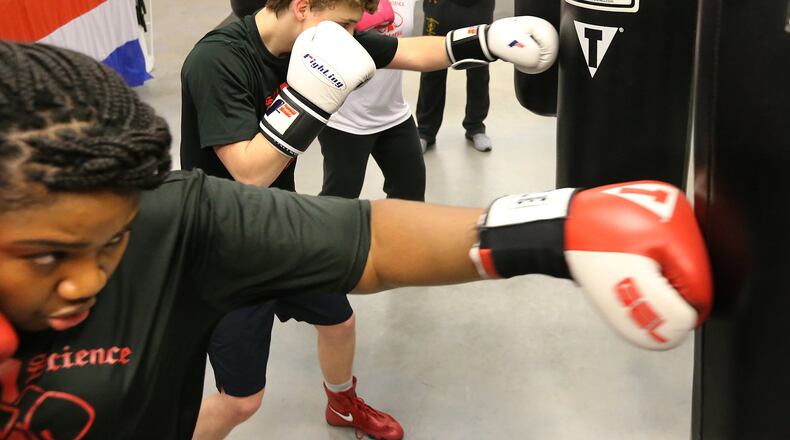Our folks in Washington want to pay Americans to sweat (or do something that at least has the potential to create sweat).
Planning to buy a new golf putter? Ka-ching! That could be a tax write-off.
So could paying for a fitness club membership, registering for a road race, signing the kids up for a baseball travel team, hiring a yoga instructor and participating in bunches of other activities.
In the next few weeks, members of Congress are expected to reintroduce the PHIT Act (Personal Health Investment Today Act). The bill, which has been proposed for several years and has growing bi-partisan support, would expand the federal definition of a medical care tax deduction to include purchases for physical fitness.
People who set aside pre-tax wages in things like health care spending accounts and flexible spending accounts could use up to $2,000 of it a year for health club fees, instructional materials and equipment that “is utilized exclusively for participation in fitness, exercise, sport, or other physical activity programs.” (Wondering where they’ll draw the line on what qualifies? Golf cart fees? Table tennis equipment?)
You won’t be shocked to learn that the sporting goods and fitness club industries love the idea. I’m sure they can smell the money.
The broader argument from supporters is that the write-offs will lower cost barriers of physical fitness activities, which will help more people to get in shape, encourage healthy habits and reduce obesity.
All of which sounds great. But some experts — and regular folks I spoke with outside a Gwinnett County fitness club — voiced doubts about how reasonable it is to connect all those dots.
Tax-loophole blubber
I like claiming tax breaks. But do you have that nagging feeling that Washington would be creating more tax-loophole blubber that will mostly benefit people already on the fitness bandwagon?
Marty Hill, a former executive headhunter who owns the Sweet Science Fitness Boxing Club in Doraville, hadn’t heard of the bill before I called him. But, man, he likes the idea.
“This is fantastic!” he told me.
Price is a big barrier for potential customers, he said, even for people he suspects could easily afford his rates, which can average $125 a month and include up to four or five classes each week.
“People are looking for deals,” he said. So he often offers short-term discounts, hoping people will stay long term.
“Incentives are really big deals in the fitness industry,” Hill said.
The Sports & Fitness Industry Association doesn’t know how much business will go up if the bill becomes law, said the organization’s lobbyist, Bill Sells. (Beautiful name for the job, right?)
But, he said, such a write-off should help families in an era when informal play outdoors has largely been replaced by organized sports that carry a cost.
Support from Georgia
In the last couple of years, more than 100 members of Congress signed on to House and Senate versions of the bill, including Georgia’s Sen. Johnny Isakson and U.S. Reps. Rick Allen, Austin Scott, John Lewis, David Scott and Hank Johnson.
Versions of the legislation have been around since 2007, Sells said. “Nothing happens real fast in Washington.”
He declined to predict chances of passage this session.
But supporters hope for a fresh opening if Donald Trump and Congress chop up and replace the Affordable Care Act and in the process consider ways to expand private health spending accounts.
The last iteration of the PHIT Act already included wording to side-step potential hot-buttons, like looking like a write-off for the rich and exclusive. Fees for fitness facilities that are private clubs owned by members don't qualify. Nor do facilities that offer golf, sailing, riding or hunting.
Also, expenses for most clothes and shoes wouldn’t qualify because they are often worn even by people who have no intention of sweating. But items such as cleats, ski boots and some uniforms could make the cut, Sells said.
This is a slippery slope, which I delighted in testing.
Would golf cart fees qualify? I asked.
“Tough one,” Sells said, though he added that even players who ride carts have to walk across the fairways, which is exercise.
Table tennis?
“I play table tennis and break a sweat,” Sells said. “Now if you said pool, I’ve never broken a sweat playing pool.”
Bowling?
“The answer I got back is, ‘Do you want to tell demographics their activity doesn’t qualify?’”
Ah, politics.
“That is for the IRS to decide,” Sells told me of some items.
Using taxes for fitness
There are bigger questions about whether the bill is an effective and efficient way to use tax dollars to boost fitness and health.
Why does government need to jump in when many employers already subsidize health club memberships for employees or offer gift cards or reduced insurance premiums for employees who log lots of steps on pedometers?
Studies show the impact of these employer fitness programs tends to be small — many participants would have been active anyway — and the costs often outweigh savings from reduced healthcare costs, said Soeren Mattke, the managing director of RAND Health Advisory Services.
He told me he suspects the effect of the PHIT Act would also be modest.
Ron Goetzel, who directs the Institute for Health and Productivity Studies at the Johns Hopkins School of Public Health, also questioned the act’s potential effectiveness.
Tax breaks are nice, but the pull of the couch is strong.
Which is a shame.
“Physical activity is probably the cheapest medicine in America,” Goetzel said.
Other coverage:
Find Matt on Facebook (https://www.facebook.com/mattkempnercolumnist) and Twitter (@MattKempner) or email him at mkempner@ajc.com.
About the Author
Keep Reading
The Latest
Featured



